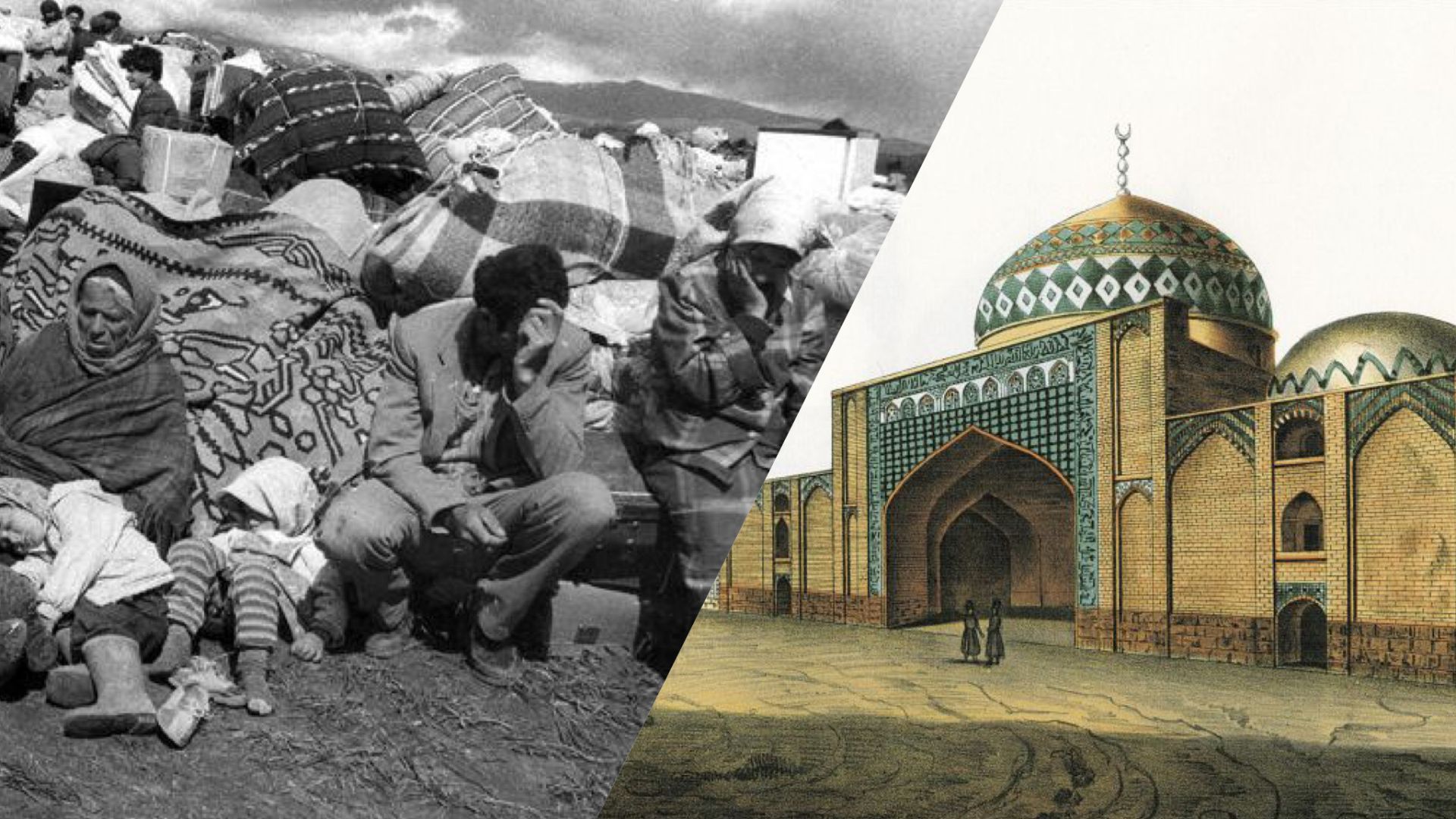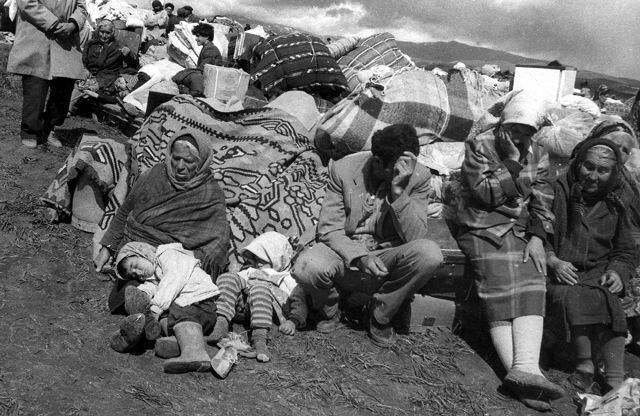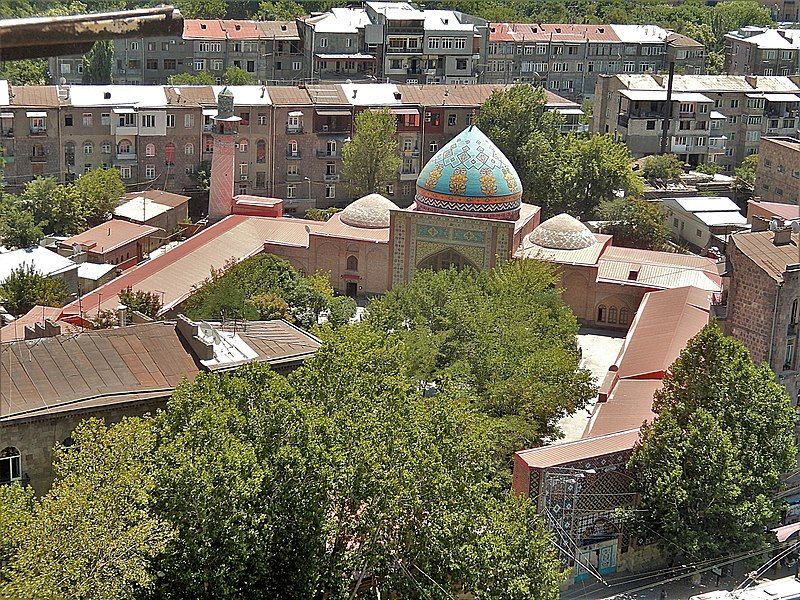Western Azerbaijanis’ Right to Return: A Fight Against Historical Injustice

Today, December 5, marks the remembrance of a brutal chapter in history: the forced deportation of Western Azerbaijanis during the years 1987-1991. This tragedy was not an isolated event but part of a systematic campaign of ethnic cleansing spanning over a century. For Western Azerbaijanis, the violation of their rights and displacement from their ancestral lands in present-day Armenia is a deep wound that reflects the broader challenges of cultural erasure, historical revisionism, and injustice.
The roots of this tragedy trace back to the early 19th century when Tsarist Russia’s annexation of the South Caucasus disrupted the demographic balance. Armenian migration to these lands was actively encouraged, which led to increased pressure on the indigenous Azerbaijani population. The first mass deportation occurred between 1905 and 1920, coinciding with the Armenian-Azerbaijani clashes. Efforts by the Azerbaijan Democratic Republic to resist this displacement were thwarted by Bolshevik Russia’s overt support for Armenian claims.

The second wave of forced deportation took place between 1948 and 1953, driven by Stalin’s policies. Officially framed as resettlement, this wave was rooted in paranoia over Azerbaijani-Turkish connections. Stalin sought to sever cultural and familial ties by relocating Azerbaijanis from Armenia to Azerbaijan under harsh conditions, leading to countless deaths.
The third and most devastating deportation unfolded between 1988 and 1991 during Armenia's aggressive push for ethnic homogenization. In just a few years, more than 250,000 Western Azerbaijanis were expelled from their homeland. The armenization of Azerbaijani cultural landmarks, systematic name changes, and the destruction of historical sites intensified during this period. Tragically, many victims did not survive the journey to safety, perishing due to harsh conditions and inadequate support.
Despite the trauma of displacement, Western Azerbaijanis have sought peaceful dialogue and advocated for their right of return under international law. This stands in stark contrast to Armenia's persistent policies of exclusion and cultural erasure. For example, Azerbaijan extended multiple assurances during and after the 2020 Patriotic War, affirming that Armenians could continue to live in Garabagh peacefully. Even the same occurred during Azerbaijan's anti-terror measures back in September 2023. It is crucial to emphasize that, unlike Armenia, Azerbaijan has unequivocally stated at the highest government levels—both during and after these operations—that Armenians are fully welcome to live in Garabagh. In stark contrast, the Republic of Armenia has repeatedly failed to demonstrate a humanitarian approach for reconciliation or dialogue regarding the return of Western Azerbaijanis since its declaration of independence. Neither the previous government nor the current one has taken responsibility.
As President Ilham Aliyev stated during his address at the Second International Conference on “The Right to Return”, this is purely a human rights issue:
"The goal of the [Western Azerbaijan] Community is to facilitate a peaceful, safe, and dignified return of our compatriots displaced from Western Azerbaijan to their ancestral lands. This is a purely human rights issue. The Western Azerbaijan Community has repeatedly called on the Armenian government to engage in dialogue, but the opposing side has always turned down these initiatives. It is extremely important that the international community should support the peaceful initiatives of members of the Western Azerbaijan Community in accordance with international law to ensure their right of return to their native lands.”
In addition, the scale of cultural destruction inflicted by Armenia is staggering. Over 2,000 place names in Western Azerbaijan were altered by Soviet and Armenian authorities. Azerbaijani cemeteries, mosques, and historical landmarks were systematically destroyed. The Blue Mosque, a prime example of Azerbaijani Islamic architecture, has been deliberately misrepresented as Persian heritage. These actions represent an attempt to rewrite history and erase the cultural identity of Western Azerbaijanis.

In his address at the Second International Conference on “The Right to Return,” President Ilham Aliyev provided powerful insights into the ongoing plight of Western Azerbaijanis:
"In the aftermath of particularly horrific deportations in 1918–1921, 1948–1953, and 1987–1991, hundreds of thousands of Azerbaijanis were driven from their ancestral homeland and sought refuge in Azerbaijan. As a result of those atrocious deportations, not a single Azerbaijani remained in Armenia, which became a mono-ethnic state. Armenia has destroyed the cultural heritage created by our people in Western Azerbaijan over thousands of years – historical sites, graveyards, mosques, and settlements – and has caused immense damage to the Art of Azerbaijani Ashiq, recognized by UNESCO as part of the universal cultural heritage. Among these historical and cultural sites, only the Blue Mosque has survived. However, Armenia is trying to deliberately alter the original historical and architectural style of the Blue Mosque and present it under a different name. Such destructive steps are nothing short of intolerance and racism."
The head of state also touched upon the issue of the return of the West Azerbaijan Community to its ancestral lands, stressing that Armenia should take decisive steps in this direction. President Ilham Aliyev also noted the sinister goals of Armenia's rapid armament in recent days. The head of state also noted that this is a direct threat to peace in the South Caucasus region.
“Unfortunately, the deep-rooted hatred towards our people in Armenian society, the myths of a “greater Armenia”, the territorial claims against Azerbaijan still embedded in the Armenian constitution, and the rapid armament of this country hinder the lasting peace between the two countries,” the President said.
According to the Azerbaijani President, Armenia is trying to deliberately portray the activities of the Western Azerbaijan Community as a threat to its territorial integrity. "However, the goal of the Community is to facilitate a peaceful, safe and dignified return of our compatriots displaced from Western Azerbaijan to their ancestral lands. This is a purely human rights issue. The fact that Armenia labels the Community’s activities as a threat represents an attempt to distort the true essence of the issue and deny the right of return enshrined in international law,” the Azerbaijani President noted.
Finally, as a member of the International Criminal Court (ICC), Armenia bears legal responsibility for the deportations and cultural destruction it facilitated. Yet, the international community, which often voices concerns over human rights, remains largely silent on the plight of Western Azerbaijanis. The world’s selective outrage—loud for some crises but muted for others—underscores the urgent need for justice and accountability.
Here we are to serve you with news right now. It does not cost much, but worth your attention.
Choose to support open, independent, quality journalism and subscribe on a monthly basis.
By subscribing to our online newspaper, you can have full digital access to all news, analysis, and much more.
You can also follow AzerNEWS on Twitter @AzerNewsAz or Facebook @AzerNewsNewspaper
Thank you!

